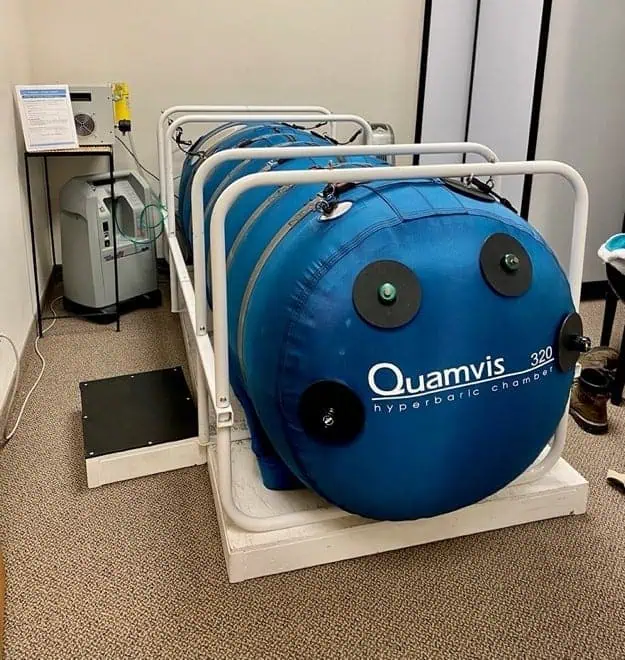If you deal with a stuffy nose from allergies, a cold, or sinus pressure, you may have seen 12-hour Sudafed at the pharmacy. Many patients ask us if it helps and how to use it safely.
Here’s a simple guide from Dr. Baxter.
What Is 12-Hour Sudafed?
12-hour Sudafed contains 120 mg of pseudoephedrine, a decongestant.
It works by:
- Shrinking swollen blood vessels in the nose
- Opening nasal passages
- Reducing sinus pressure
- Helping you breathe more easily
Each dose is designed to last about 12 hours, so it can be taken up to two times per day. However, decongestants can cause insomnia, so many patients prefer to take the 12 hour formulation only in the morning. Once a day is often preferable to twice when side effects are considered.
There are 30 mg and 60 mg doses of pseudoephedrine available as well. Patients who are sensitive to stimulants may prefer the shorter-acting 30 mg dose, which helps for about 4 hours.
Important: Sudafed does not treat the cause of allergies. It only helps ease symptoms for a short time.
When Patients Use It
Many people use 12-hour Sudafed for temporary relief from:
- Seasonal allergies (pollen, mold, ragweed)
- Indoor allergies (dust, pet dander)
- Sinus pressure or fullness
- Cold-related congestion
- Ear pressure during illness or travel
At Allergy Doctor Dallas, we often discuss Sudafed as a supportive option for short-term symptom relief.
How to Take It Safely
Pseudoephedrine is kept behind the pharmacy counter. You do not need a prescription, but you must show ID.
Safety tips:
- Follow the label directions
- Do not take more than recommended
- Avoid taking it late in the day (it may affect sleep)
- Do not crush or chew 12-hour tablets
- Limit use to short periods unless your doctor advises otherwise
If congestion lasts more than a week, it may be time for a medical evaluation.
Possible Side Effects
Most people tolerate Sudafed well, but some may notice:
- Trouble sleeping
- Feeling nervous or jittery
- Faster heart rate
- Headache
- Dry mouth
Stop use and contact a healthcare provider if you feel chest pain, severe dizziness, or unusual symptoms.
Who Should Talk to a Doctor First?
Sudafed may not be right for everyone. Check with your provider if you have:
- Uncontrolled High blood pressure
- Heart disease
- Thyroid disease
- Glaucoma
- Prostate problems
- Anxiety or sleep issues
- Pregnancy or breastfeeding
It can also interact with some medications, including certain antidepressants and blood pressure drugs.
The team at Allergy Doctor Dallas can help you decide what is safe for your health history.
What About Combination Products?
Often, people like to choose combination products like Allegra D, Zyrtec D, or Claritin D. Some of the products offer a choice between 12-hour and 24-hour products. Patients choose a 12-hour product because the 240 mg dose of pseudoephedrine found in the 24-hour products is simply too much for them.
Something few patients realize is that the 12-hour products contain only half of a usual dose of Claritin or Zyrtec ( 5 vs 10 mg in both cases ) and only 60 mg vs 180 mg of Allegra.
What this means is that patients taking combo products often need additional antihistamines, so in those cases, they would get more relief from taking separate doses of decongestant and antihistamine.
This is not an error by the manufacturers. It’s a flaw in the FDA requirements for new formulations that combine 2 medications.
Fun fact: Since 120 mg of pseudoephedrine lasts 12 hours and Zyrtec and Claritin 10 mg doses are approved for 24-hour dosing, the companies are only allowed to include half of the 24-hour dose. In reality, these medications have half-lives of about 14 hours, so re-dosing is often needed, and the 5 mg allowed in the 12-hour combination is completely inadequate to control symptoms.
Sudafed vs. Allergy Treatment
Sudafed helps with congestion, but it does not control the allergy response.
Long-term allergy care may include:
- Nasal steroid sprays
- Antihistamines
- Allergen avoidance strategies
- Allergy testing
- Allergy shots (immunotherapy)
If you need Sudafed often, your symptoms may not be well controlled.
When to See an Allergy Specialist
Schedule a visit if you have:
- Congestion that lasts weeks or months
- Frequent sinus pressure or infections
- Symptoms that affect sleep or daily life
- Ongoing need for decongestants
- Poor relief from over-the-counter products
At Allergy Doctor Dallas, we focus on identifying the cause of your symptoms and developing a care plan that meets your needs.
The Bottom Line
12-hour Sudafed can provide temporary relief from nasal congestion and sinus pressure. It works best as a short-term, supportive option—not a long-term solution.
If you rely on decongestants often, it may be time to look deeper at the cause of your symptoms.
Need help with ongoing congestion or seasonal allergies?
The team at Allergy Doctor Dallas in Dallas, TX, is here to help you breathe easier with personalized care. Contact us to book your first appointment.












